- Home
- Rose Tremain
The Gustav Sonata Page 5
The Gustav Sonata Read online
Page 5
‘We’ll have to see,’ she said. ‘Some of this is still a bit messy. We’ll have to hear what the headmaster says.’
Herr Hodler stayed until the spring came. By then, Gustav had learned most of the stories in Struwwelpeter by heart and could terrify Anton by reciting them.
Weh! Jetzt geht es klipp und klapp
mit der Scher die Daumen ab,
mit der grossen scharfen Scher!
Hei! Da schreit der Konrad sehr.
He had a sketchy idea of how his country had come into being. He could make ‘sensible’ drawings of churches with roofs like witches’ hats and of the bear of Bern, symbol of the great city Anton still talked about.
And it was possible to say that Gustav had become fond of Max Hodler. It was possible to say that the single swear word, scheisse, had opened the door to a friendship. When the moment came for Max Hodler to leave, Gustav felt sad to be parted from him.
‘I’ll see you from time to time in school,’ said Max.
‘Yes,’ said Gustav.
‘You must keep working hard.’
‘Yes.’
‘Make your mother proud of you.’
‘Yes.’
As a leaving present to Max Hodler, Gustav had made a copy of the map of Mittelland in his room. He’d coloured the land green and the rivers blue. Here and there, on the green ground, wandered a few animals, which might have been ibex or which might have been grey sheep. Bern was a black circle, with its brown bear keeping watch. By Matzlingen was the circular cheese with the slice cut out of it. Near this, Gustav had written Herr Max Hodler lives here.
What Gustav didn’t know was that Emilie Perle hadn’t paid Max Hodler his tuition fees since February. He didn’t know, either, that Max had – just once – gone to ask for them, but that Emilie had been repelled by his rabbit eyes, damp and pleading, and had sent him away with nothing. By the time he left, the fees had still not been paid. All Max had from Emilie was a scribbled IOU. The tutor felt this to be unfair. He had worked hard with Gustav and was proud of the results. But Emilie Perle was too overwhelmed by her own troubles to give this any consideration.
The cheese co-operative remained open, but had cut back its production by 40 per cent and put all its workers on half-pay. Now, Emilie worked only three days a week. On the days when she had nothing to do, she walked around Matzlingen looking for new employment.
But light seemed to be arriving once again in Gustav’s life. It was the bright, glittery light that had fallen on the Elysian Fields of the ice rink.
By the end of April, he was able to say to Anton, ‘I can come skating on Sundays again.’
‘Oh,’ said Anton. ‘Well, it doesn’t matter now.’
‘What?’ said Gustav.
‘It doesn’t matter any more.’
‘What d’you mean?’
‘Well. We take Rudi Herens skating with us now.’
‘Who’s Rudi Herens?’
‘He’s a boy in our apartment building. He’s a really good skater. He can do double-toe loops.’
‘You mean you don’t want me to come?’
‘I do, Gustav. But three boys would be too many for Mother. She said that to me the other day: three would be too many.’
They were in a school passageway when this conversation took place. Gustav left Anton and walked away. He didn’t know where he was walking to. It was time for a geography lesson, but it was not towards this that Gustav was going.
When he reached the end of the long passage, he went into the lavatories, a high barn of a room, which always felt cold, even in summer. He opened a cubicle and locked the door. He sat, not on one of the toilets, but on the tiled ground, with his knees drawn up to his chest. He thought about the things Max Hodler had said about coconuts – their hard outer shell protecting the flesh inside. He tried to imagine such a shell growing round him, an impenetrable shield. He examined his soft, white arms.
___________________
* The first English version of Struwwelpeter by Heinrich Hoffmann was published in Leipzig in 1848. This very free translation, by Alexander Platt, has remained the most popular. Here, these lines are rendered as follows:
Snip! Snap! Snip! The scissors go;
And Conrad cries out ‘Oh! Oh! Oh!’
Snip! Snap! Snip! They go so fast,
That both his thumbs are off at last.
Views of Davos
Matzlingen, 1950–51
SOMETIME AFTER THIS, when Adriana Zwiebel came to pick up Anton from school, she saw Gustav on the school steps, playing with some jacks, given to him by Max Hodler. She got out of her car and came, smiling, towards him. She was wearing a summer dress, patterned with coral-coloured tulips. Her hair was loose and shone in the sun.
Gustav gathered up the jacks and ran towards Adriana and she bent down and hugged him. ‘How are you, Gustav?’ she asked.
‘All right, thank you, Frau Zwiebel,’ said Gustav.
‘Good,’ said Adriana. ‘But Anton told me about your mother losing some of her hours at the cheese factory. That’s most unfortunate.’
‘Yes,’ said Gustav.
‘I would like to help.’
Gustav wasn’t sure what Adriana Zwiebel expected him to say. It was difficult for him to imagine how she could ‘help’ Emilie. Perhaps she didn’t know how she could, either, because she abruptly changed the subject and said, ‘How is your tuition going?’
‘It’s finished,’ said Gustav. ‘I’m better at writing now. And I can draw the men at the Rütli Meadow. Herr Hodler gave me these jacks as a present for my work.’
He held out the jacks, still shiny and new-looking, despite the dust from the schoolyard.
‘Oh,’ said Adriana, ‘what fun! They say, in the old bad times, when Switzerland was a poor country, children used to play this game with knuckle bones.’
Anton came running out then and embraced his mother. Gustav watched them cling together. He expected that, now, something might be said about the skating, but the two of them were silent, just sweetly hugging each other. Gustav stared at them. What he wanted was to leave with them and go back to the apartment on Fribourgstrasse and eat cherry tart and listen to Anton’s playing. But Anton was now tugging his mother away towards the car.
‘Wait a moment, Anton,’ said Adriana. ‘I was saying to Gustav, we must try to find new work for his mother. I’m going to ask around. Would she consider leaving the cheese factory to work full-time elsewhere?’
‘I don’t know,’ said Gustav.
‘The thing is, I know that part-time jobs are difficult to find. Do you think she might like to work in a flower shop? The place where I buy my geraniums, they told me they would soon be looking for someone …’
A flower shop. The scent of roses. Everything fresh and damp. And no more smell of Emmental on Emilie’s clothes. Gustav thought she might be happy at this suggestion. He nodded, on her behalf.
‘Good,’ said Adriana. ‘I’ll go and see them and ask. Anton will let you know.’
‘Let him know what?’ asked Anton, who hadn’t been listening, but searching the deep pocket in his mother’s dress for sweets and finding only a half-smoked packet of French cigarettes.
‘If there might be a job for Frau Perle in Valeria’s flower shop.’
‘Why would she want to work there?’ said Anton. ‘I hate going into that shop. It’s always cold.’
Adriana smiled. ‘I don’t think you know very much about it,’ she said. ‘People who work with flowers are usually happy.’ Then she took Anton’s hand and they walked away.
When Gustav got home, Emilie was cooking a vegetable stew. The small kitchen was scented with leeks. She had told Gustav they couldn’t afford meat any more, not even the bratwurst on which he doted.
Gustav went to the kitchen widow and stared out at Unter der Egg. He could see Frau Teller packing up her stall and he thought about what Adriana had said about the vacancy in Valeria’s flower shop, but he knew better than to mention it at t
his moment.
‘I was looking at some photographs today,’ Emilie said brightly, ‘of your father and me, when we went on holiday to Davos. Would you like to see them?’
‘Yes,’ said Gustav. ‘Was I there?’
He wasn’t there. He was in some other before-life life.
The first photograph was of a wide balcony with snowy mountains in the background.
‘Our hotel balcony,’ said Emilie. ‘Look how spacious it is. It was such a nice establishment. Hotels are wonderful places.’
Then there was a picture of Emilie in a wickerwork chair on the same balcony. The sun was on her face, and her hair looked fresh and clean and she was laughing.
‘You look nice, Mutti,’ said Gustav.
‘Do I? Well, that was long ago, 1938, before the war. Now, here’s your father. We thought we were going to have a good life.’
Erich was standing up, framed by the mountains, smoking a pipe. He was wearing a white shirt and his trousers were held up by braces. His face looked dark with sunburn.
The other pictures were mainly what Emilie called ‘views of Davos’. She explained to Gustav that it had once been the most famous place in the world for the curing of tuberculosis, because the air was so good and there were so many hours of healing sunshine. People came from thousands of miles away to Davos, and were cured. Huge sanatoria were built there to accommodate all the people suffering from TB, which was also known as ‘consumption’ because the disease eats away the lung tissue. Some still came, because Davos would be forever known as a place of healing.
Gustav returned to thumbing through the ‘views of Davos’, looking for another picture of Erich. And here he was now, smiling, sitting at a café table, with a flagon of beer in front of him and a waiter in a long white apron standing behind him.
‘You see the kind of places we were able to go to?’ said Emilie. ‘You see the waiter, very correctly attired? We felt so spoiled and happy. Your father didn’t want to leave Davos. He rebooked our train tickets, to stay an extra two days. And on our very last night, I said to him, “Don’t worry, I’m sure we will come back.” Davos was the most perfect place we’d ever known. The sun shone every day, every single day. But we never went back.’
‘Why not?’ asked Gustav.
‘Time,’ said Emilie. ‘When you’re young, you think you’re always going to have lots of time ahead of you, in which to do the things you planned. You don’t notice time passing, that’s the trouble. But it passes just the same.’
At the end of the year, the cheese co-operative closed its doors for good. The milk from the valleys around Matzlingen was shipped elsewhere, to Burgdorf or Lyss, or even as far as Bern. The great vats and churns, over which Emilie and her colleagues had sweated, were dismantled and moved outside to a rickety shelter, where the wind and rain began to rust them and where goats sometimes clambered, smelling the dregs of the curds in the corroding metal.
Emilie went to see the pastor of the Church of Sankt Johann to ask for more work and was given a job on Monday mornings, cleaning up after the Sunday services. But she hated it. She told Gustav, ‘You’d be surprised what a mess people make in church. Sometimes I find communion wafers, half chewed and spat out onto the floor. And piles of confetti in a mush, like vomit.’
It was then that Gustav dared to mention the possibility of the job in Valeria’s flower shop.
‘How d’you know about it?’ asked Emilie.
‘From Frau Zwiebel.’
‘Oh,’ said Emilie, ‘I suppose she buys her geraniums there?’
‘Yes, I think she does.’
‘Well, you can tell her, I’m not looking for charity.’
‘What’s charity? This is just a job. Someone else may have got it by now.’
At this, Emilie softened. She said, ‘Well, beggars can’t be choosers, I suppose. Perhaps you can ask Frau Zwiebel about it – if you ever see her.’
Gustav said he would ask. He liked to imagine his mother among scented greenery and roses and lilies. He thought that, when August 1st came round again, Valeria might let her have her posies of gentian flowers for nothing and how, when Emilie set these out beside the photograph of Erich Perle, she would be able to say to him, ‘I’m working in a nice place now. My clothes don’t smell of cheese any more.’
But Emilie Perle never took the job in the flower shop. She fell ill.
Ludwig
Matzlingen, 1951
FOR DAYS, EMILIE remained in bed in the apartment on Unter der Egg, sweating, shivering and coughing. Gustav had to tell her that there was no food left in the larder, so she sent him out with a few francs to buy cheap vegetables. She said, ‘Just peel them, Gustav, and put them in the pot of water and boil them. Then bring me a cup of the broth.’
He was quite proud to be able to do all this – shop for leeks and carrots and onions and then peel and chop them and light the gas and set the heavy pot on the stove. He tied one of Emilie’s aprons round himself. He turned on the radio and found a jazz programme, and attempted to beat time to the riffs of the saxophone with a wooden spoon.
‘What’s that awful noise?’ cried Emilie from her bed. ‘Turn it off!’
He sat by her, trying to spoon broth into her mouth. He saw that her lips were dry and cracked. She told him the broth was too hot, and closed her eyes. He stared at her, perplexed. A familiar, acrid smell, which Gustav didn’t want to think about, filled the room. He didn’t know whether he should try again with the broth, or tiptoe away, to let his mother sleep. He knew that, more and more in her life, sleeping was the thing she liked best.
He stirred the broth, round and round. He saw a wasp crawling up and down the window glass and hoped that it wouldn’t come over to the bed and sting Emilie, trying to drink the moisture that was beading on her face. He touched her shoulder gently, to wake her and she gulped in a little more of the broth. Then she waved it away and said, ‘I can’t. I’m too ill. Go and find Frau Krams, Gustav. Tell her to call an ambulance.’
Frau Krams was the concierge of the building on Unter der Egg. She had a peculiar son called Ludwig, who was old enough to work at a full-time job, or to be sent into the Citizen Army, but who hung around on the stairs and corridors most of the time, humming a little private tune and doing odd jobs for the tenants, in return for small sums put into a palm outstretched like a street beggar’s. Emilie Perle said Ludwig Krams was ‘a disgrace to Swiss values’. He liked children, however. Whenever he saw Gustav he would ruffle his hair and say, ‘How’s it going, little man? Come and talk to me. Tell me what the world is doing to you.’
Gustav knocked at Frau Krams’s door and Ludwig appeared, smoking a skinny cigarette. ‘How’s the universe?’ he said.
‘Not very good,’ said Gustav. ‘My mother is ill. She needs an ambulance.’
‘Oh,’ said Ludwig, ‘ambulances, hospitals … let’s not mention those. Shall we play a game of jacks?’
‘I haven’t got the jacks,’ said Gustav.
‘Too bad,’ said Ludwig. ‘Too bad, manikin. Can’t you fetch them?’
‘Not now. We have to get an ambulance for Mutti.’
Gustav waited. Ludwig sucked on his cigarette. Gustav could see Frau Krams inside their parlour, winding wool from the back of a chair. She got up and came to the door, pushing Ludwig out of the way. ‘Ambulance, Gustav? Did I hear that word? What’s happened?’
Gustav described how his mother lay in bed and was too weak to move and perhaps had wet her bed more than once. Frau Krams put her plump hands over her mouth. ‘Mein Gott!’ she said.
She followed Gustav up the stairs. Ludwig wanted to come with them, but Frau Krams sent him down again.
When they got to the apartment, the largeness of Frau Krams, the way her body seemed to fill up a doorway, was suddenly reassuring to Gustav. As he showed her into Emilie’s room, he realised that he was very tired, as though some of Emilie’s illness had passed into his blood and made him weak.
He watched as Frau Krams ben
t over Emilie, and stroked her burning cheek. The stench of urine was very strong. Frau Krams now took the green eiderdown off the bed. Then she threw back the rest of the bedclothes and lifted Emilie, light as a child in her arms, and sat her in the armchair, tucking the eiderdown tightly round her.
‘I’m sorry …’ said Emilie.
‘Nothing to be sorry about,’ said Frau Krams.
She took the stained sheets off the bed and opened the window. She told Gustav to run a bathful of water, then tip disinfectant in it, and soak the sheets in that. ‘When you’ve done that, come and sit with your mother. I’m going down to call an ambulance. This could be pneumonia.’
‘Or it might be TB,’ said Gustav.
‘What?’
‘I know about TB. Then Mutti would have to go to Davos.’
Frau Krams stared at Gustav, who was now holding the bundle of urine-soaked sheets. She shook her head. ‘No, no,’ she said. ‘I don’t think so, pet. Now, wait here for me. I’ll bring the ambulance people up.’
Gustav ran the hot water and found the disinfectant Emilie used to clean the toilet and poured it all in. The water jumped and bubbled, as if it were acid. Fumes rose from the bath and made Gustav gag. He waited till the bath was full, then he went back to Emilie, who had fallen sideways in the chair, with her head lolling on her chest. Now, she looked very peculiar, trussed up in the green eiderdown. She reminded Gustav of a silkworm. Her face was blank white, but with two hectic spots of red on her cheeks, like the bruises a silkworm might have suffered falling to the kindergarten floor.
There was one other chair in Emilie’s room, a hard Biedermeier chair that had come with her to Unter der Egg from her former life on Fribourgstrasse. Gustav tugged this towards Emilie’s armchair and sat down on it and stared at his mother. He saw in this moment how thin she had become, and how angry. And he wondered whether he was to blame for these things in some way that he didn’t understand. He reached out and touched Emilie’s shoulder, just visible, in a pink nightdress, above the rim of the eiderdown. He stroked this gently, feeling the hard collarbone under his hand. He wished she wasn’t ill, so that he could climb onto her lap and be held in her arms until he fell asleep.

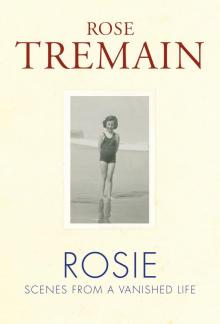 Rosie
Rosie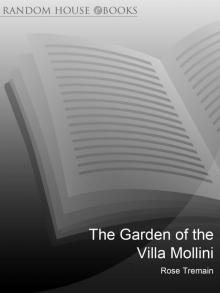 The Garden of the Villa Mollini
The Garden of the Villa Mollini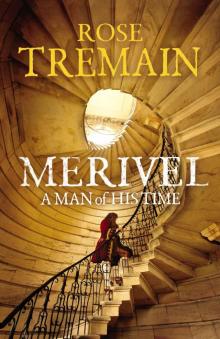 Merivel: A Man of His Time
Merivel: A Man of His Time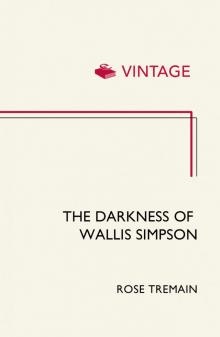 The Darkness of Wallis Simpson
The Darkness of Wallis Simpson Earth
Earth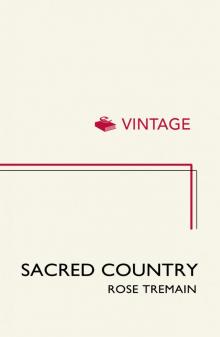 Sacred Country
Sacred Country The Swimming Pool Season
The Swimming Pool Season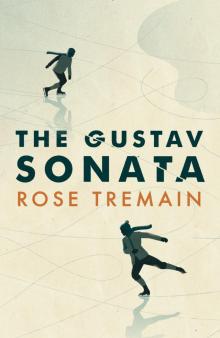 The Gustav Sonata
The Gustav Sonata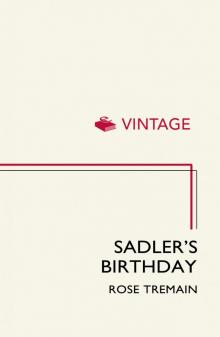 Sadler's Birthday
Sadler's Birthday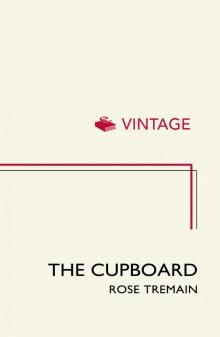 The Cupboard
The Cupboard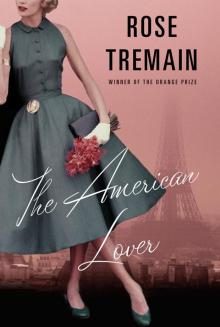 The American Lover
The American Lover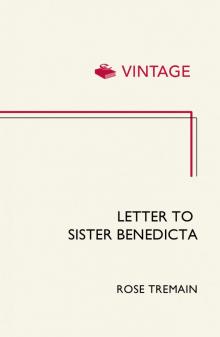 Letter to Sister Benedicta
Letter to Sister Benedicta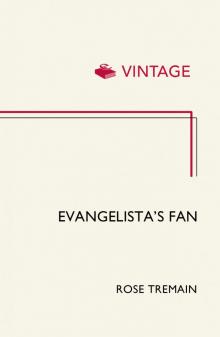 Evangelista's Fan
Evangelista's Fan Restoration
Restoration The Road Home
The Road Home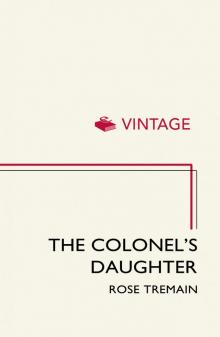 The Colonel's Daughter
The Colonel's Daughter The Way I Found Her
The Way I Found Her Music & Silence
Music & Silence